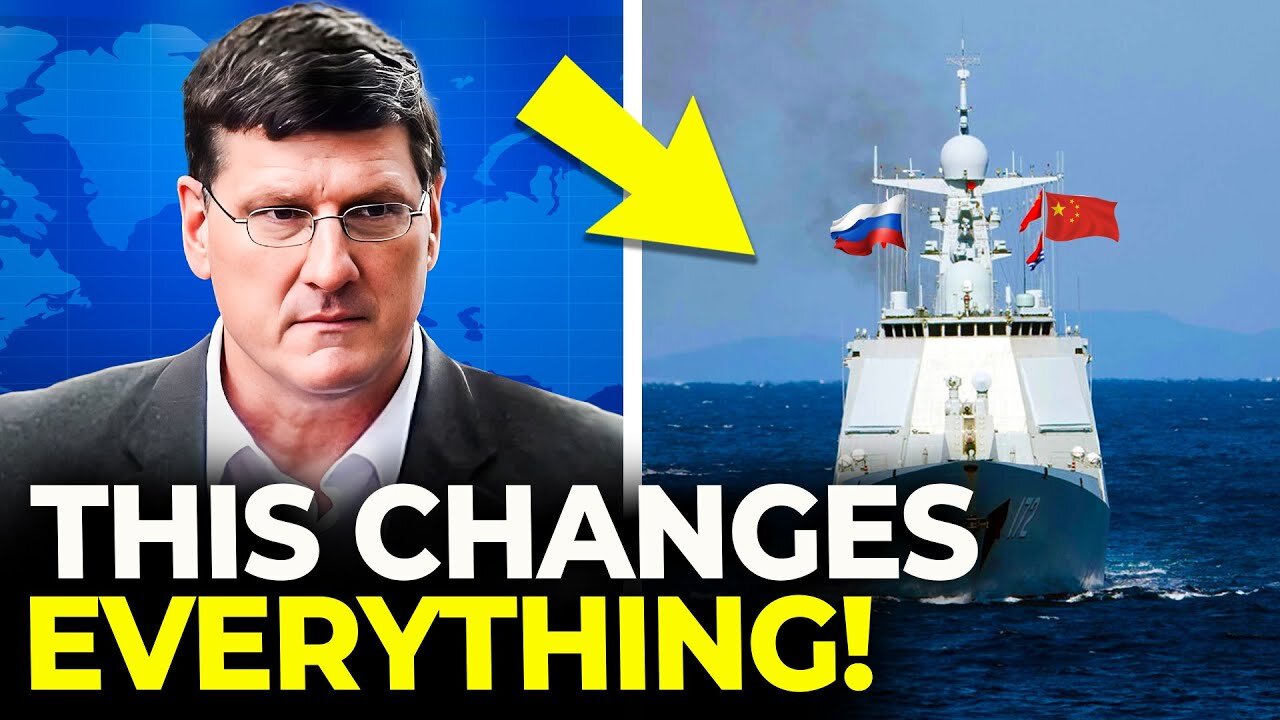Premium Only Content

Scott Ritter Reveals China & Russia Just Entered The Red Sea In Support Of Houthi Rebels!
Exploring recent developments that have reverberated across the global community in the Red Sea region, this video delves into Scott Ritter's groundbreaking findings regarding the increasing support from China and Russia for the Houthi rebels in Yemen, directly challenging the interests of the US and the UK.
Beyond the confines of Yemen, the Houthi rebels, also known as Ansar Allah, have been embroiled in a protracted conflict. Scott Ritter, a former UN weapons inspector and a seasoned expert in Middle Eastern politics, sheds light on the complexity of this scenario, particularly in light of recent attacks against the Houthi rebels and their far-reaching implications.
Concerns surrounding the ethical and legal dimensions of Western involvement in the Yemeni crisis have escalated, attributing recent attacks on the Houthi rebels to actions by the US and UK. This video delves deeper into Scott Ritter's findings, offering crucial insights into the rapidly evolving dynamics of the region.
As China and Russia strategically position themselves in the Red Sea and align with the Houthi rebels, their geopolitical interests come into play. Russia's aim to counterbalance Western powers and China's focus on safeguarding maritime trade routes and expanding influence in the Middle East further complicate an already unstable situation.
The implications for US and UK interests are substantial. While both nations have actively supported the coalition led by Saudi Arabia to contain Iranian influence and restore stability in Yemen, the entry of China and Russia into the conflict jeopardizes their influence, prompting a reconsideration of their respective positions.
The Yemeni conflict has already triggered one of the worst humanitarian crises in history, with millions enduring severe food shortages, inadequate access to clean water, and substandard healthcare. The involvement of major players such as the US, UK, China, and Russia complicates humanitarian efforts, exacerbating civilian suffering.
In response to Scott Ritter's revelations, diplomatic efforts are intensifying. Western nations are expressing concerns and calling for de-escalation, with emergency sessions convened at the UN Security Council to address the crisis. However, finding a diplomatic solution remains challenging given the intricate network of allies and external interests.
Iran's role adds another layer of complexity to the Yemeni crisis, as its significant support for the Houthi rebels amplifies tensions in the Middle East. The Iran nuclear deal, or JCPOA, further complicates the situation.
The future remains uncertain, with various possibilities, including an escalation of the conflict, diplomatic breakthroughs, regional spillover, and shifts in alliances. The changing dynamics will position the Middle East as a region of global significance.
The revelation of China's and Russia's support for the Houthi rebels marks a pivotal shift in the geopolitics of the Red Sea region and the Yemeni conflict. Scott Ritter's insights provide a comprehensive understanding of these developments and their impact on international relations. Stay tuned as we continue to investigate this evolving scenario and its implications for the global stage. Don't forget to subscribe, like, and share our channel for more updates and in-depth commentary on crucial global issues.
-
 LIVE
LIVE
Phyxicx
6 hours agoFinal Fantasy XIV - Finishing Stormblood - 1/11/2025
1,239 watching -
 9:21
9:21
BlackDiamondGunsandGear
6 hours agoBest of Both AR-15 + Ak47 = CMMG Mutant DISSENT
2.71K4 -
 4:27:23
4:27:23
JdaDelete
17 hours ago $7.16 earnedCool Spot - Sega Saturday + Pizza Tower (Encore)
65.6K5 -
 14:13
14:13
Tundra Tactical
1 hour agoMatt Livelsberger: Master Spy or Tragic Downfall?
1.11K1 -
 4:50:45
4:50:45
Rotella Games
7 hours agoMake the Manor Great Again | The Bread Chronicles | Day 2
36.9K2 -
 9:26
9:26
Jamesons Travels
1 day ago $4.62 earnedShawn Ryan CLOWNS Intel Expert & It GETS WEIRD!
26K4 -
 2:09:52
2:09:52
Jewels Jones Live ®
1 day agoTRUMP'S GOLDEN AGE | A Political Rendezvous - Ep. 105
28.3K23 -
 1:14:28
1:14:28
Michael Franzese
16 hours agoThe Hidden Cause of LA's Deadliest Fires in 2025?
58.5K103 -
 3:59:45
3:59:45
Bitcoin Sports Network
9 hours agoMax & Stacy Invitational Day 2 Part 1 - LIVE from El Salvador
125K10 -
 1:34:30
1:34:30
The Criminal Connection Podcast
5 days ago $2.32 earnedEL PACO: Gypsy Family Wars, Bare Knuckle Boxing, Assassinations and Spirits!
56K3